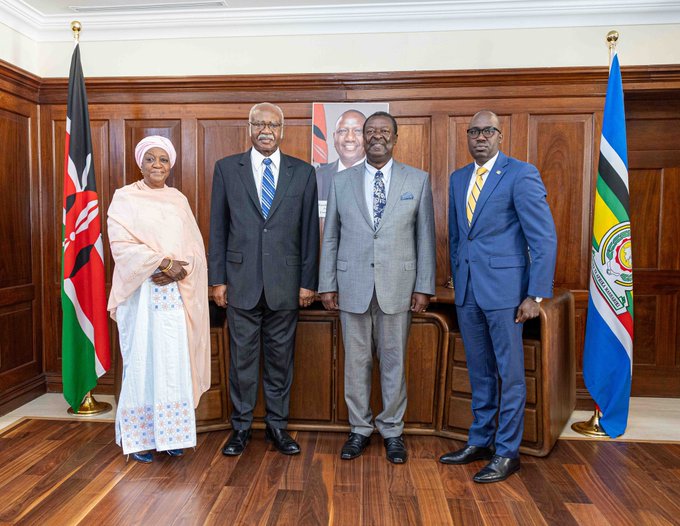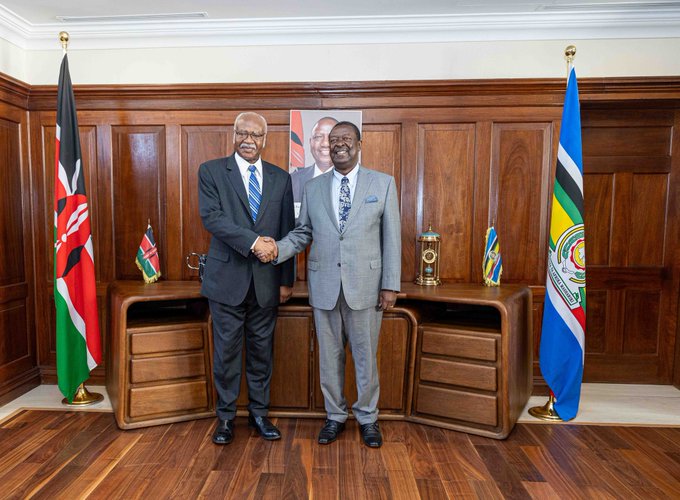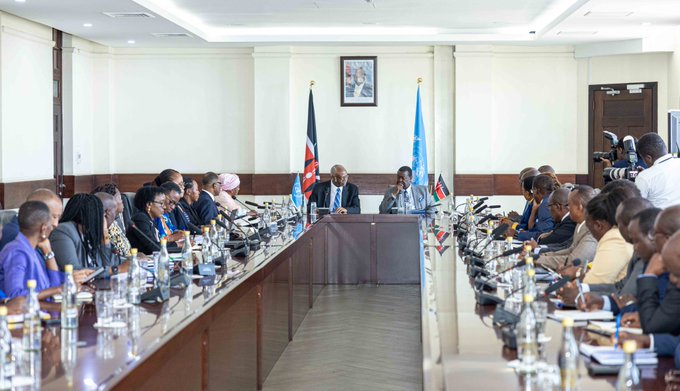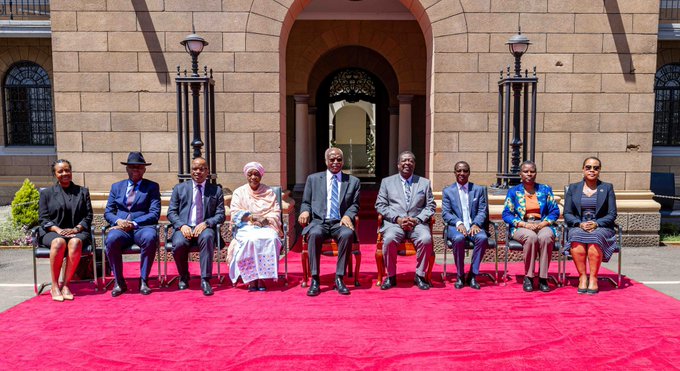NAIROBI, Kenya – Kenya is set to bolster its position as a key international diplomatic hub with the establishment of three new United Nations global offices by the end of 2025.
The move will see the United Nations Children’s Fund (UNICEF), the United Nations Population Fund (UNFPA), and UN Women set up operations in Nairobi, further cementing the city’s status as a critical center for global governance.
The announcement follows a high-level consultative meeting at the office of Prime Cabinet Secretary Musalia Mudavadi, where discussions highlighted Kenya’s strategic advantage as a regional logistics and financial hub.
Officials underscored the country’s long-standing collaboration with the UN and its potential to support multilateral diplomacy and regional development.
The expansion builds on Kenya’s existing role as host to the United Nations Environment Programme (UNEP) and UN-Habitat, whose headquarters are already based in Nairobi.
According to Mudavadi, the government is committed to ensuring a conducive legal and operational environment for the new offices.
“We are working closely with the UN to strengthen Nairobi’s position as a critical hub for global operations,” Mudavadi stated. “Kenya will leverage the UN’s existing presence and the opportunities within the Horn of Africa, East, and Central Africa.”
Welcomed H.E. Philemon Yang, President of the 79th Session of the United Nations General Assembly, for a high-level consultative meeting on deepening Kenya’s collaboration with the United Nations. Our discussions centered on strengthening Kenya’s role in multilateral diplomacy…
Zainab Bangura, Director-General of the UN Office in Nairobi (UNON), described the city as the UN’s fastest-growing duty station, currently hosting 86 UN agencies, with 73 located in Nairobi’s Gigiri area.
“The UN’s presence in Kenya has grown tremendously. When UNEP was established, there were just 300 staff members; today, we have 6,500 staff and 11,000 dependents,” Bangura said.
In addition to the new offices, the UN is set to invest $340 million (approximately Ksh. 44 billion) in upgrading Nairobi’s diplomatic infrastructure.
A key highlight of this investment is the construction of a new 9,000-seat assembly hall—the first such UN facility since 1949.
Once completed, the hall will bring Nairobi’s capacity in line with New York and Geneva, allowing Kenya to potentially host a future UN General Assembly session.
“This is a historic moment for Kenya,” Bangura noted. “We are seeing Nairobi rise to a competitive level alongside Geneva and New York.”
The decision to expand UN operations in Kenya reflects the country’s rising diplomatic profile.
Since joining the United Nations in 1963, Kenya has played a key role in peacekeeping, regional stability, and the advancement of the Sustainable Development Goals (SDGs).
Mudavadi indicated that Kenya’s appeal extends beyond the UN, with other international agencies and NGOs also exploring the possibility of establishing regional offices in Nairobi.
“Apart from the UN, we are seeing other entities wanting to come to Kenya,” he said. “We are receiving numerous requests from international agencies looking to relocate here.”
With the 2030 UN General Assembly in sight, there are discussions about elevating Kenya’s status within the UN framework.
This could further entrench Nairobi as a key diplomatic hub, alongside the organization’s traditional strongholds in Europe and North America.







